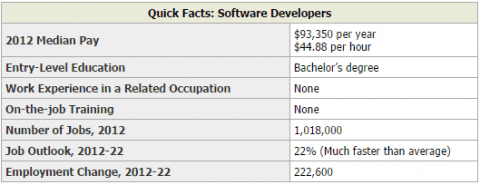Computer science degree holders enjoy some of the highest starting salaries of any major, averaging as high as $85,000 for bachelors degrees and $100,000 for masters degrees. According to the Bureau of Labor Statistics, software developer jobs are abundant, and they pay well:

2012 Figures taken from bls.gov's Occupational Outlook Handbook




